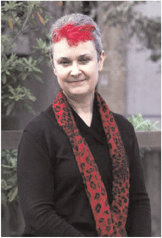Industry partnerships in addressing mental health
Carole James A , Brian Kelly A , Robyn Considine B , Ross Tynan C , Jaelea Skehan C and Jane Rich AA Centre for Resources Health and Safety, The University of Newcastle.
B Consan Consulting.
C Hunter Institute of Mental Health.
The APPEA Journal 56(2) 537-537 https://doi.org/10.1071/AJ15043
Published: 2016
Abstract
Mental health issues are widespread across Australia, with the most common mental illnesses experienced by 20% of the population in any 12-month period. While no industry-specific data exists, general national population data suggests that all employers are managing workers affected by mental illness.
Workplaces are ideally placed to prevent mental health problems, promote mental health, and support a person with mental illness. Investing in strategies to support mental health in the workplace has been associated with improvements in productivity, job satisfaction and significant returns on investment.
This extended abstract discusses approaches to addressing mental health in the resources sector and reports on industry engagement, partnership with researchers from The University of Newcastle, and research into targeted interventions. A range of partnership activities included the development of a framework to support mental health in the workplace—a Blueprint for Mental Health and Wellbeing—and various workplace strategies to address mental ill-health and wellbeing.
Discussion centres on the feasibility, acceptability and effectiveness of a multi-component mental health program that aims to promote:
-
mental health awareness to employees;
-
a peer-based support model;
-
education to supervisors regarding the management of staff experiencing mental health problems; and,
-
a review of organisational policy.
Research in the coal-mining sector has demonstrated that through industry partnership, appropriate interventions can be developed and implemented that result in policy and practical changes that better the health and wellbeing of employees.

Carole James is an Associate Professor in the discipline of occupational health and safety at the University of Newcastle. She is also Associate Director in the Centre for Resources Health and Safety. Carole is an experienced occupational therapist, specifically with expertise in mental health and workplace injury management. |

Brian Kelly is Professor of Psychiatry, Interim Head of School (School of Medicine and Public Health), and Interim Dean of the Joint Medical Program (University of Newcastle and University of New England). He is also Director (Clinical) of the Priority Research Centre for Brain and Mental Health Research, and Chair of the Centre for Resources, Health and Safety, within the University of Newcastle’s Institute for Energy and Resources. Brian is also a Consultant Psychiatrist (Clinical Academic) at the John Hunter Hospital (Newcastle). |

Robyn Considine is Director of Consan Consulting, an Associate of the Centre for Rural and Remote Mental Health, and Conjoint Lecturer in Public Health at the University of Newcastle. She has also been the chair and board member of Hunter JobLink, an organisation established specifically to support people with a mental illness in accessing and maintaining employment. Robyn has had extensive experience in research, including NHMRC research grants in the public and preventive health areas. She has applied a variety of methodologies for descriptive research including data review, focus groups, random community surveys and consensus approaches, and has undertaken intervention research. |

Ross Tynan is a postdoctoral researcher with the Hunter Institute of Mental Health and Centre for Resources Health and Safety. He has a Bachelor of Psychology (Honours) and a PhD in psychology. Ross has been working on the Working Well: Mining in Mental Health project, and his research experience is in the areas of mental health including chronic stress and depression. |

Jaelea Skehan is the Director of the Hunter Institute for Mental Health, and has interests in the prevention of mental illness and suicide. She is a registered psychologist, and holds a conjoint appointment with the School of Medicine and Public Health at the University of Newcastle. |

Jane Rich is a postdoctoral research fellow with the Centre for Resources Health and Safety within the Newcastle Institute for Energy and Resources. Jane is a qualitative health researcher with special interests in how psychosocial and environmental factors impact health and wellbeing. Her present research examines health and wellbeing through the multiple lenses of workplace health and wellbeing, chronic disease and mental health, rural communities, and gender. |
References
Australian Bureau Of Statistics, 2008—National survey of mental health and wellbeing 2007: summary of results. Canberra: Australian Bureau of Statistics.Hilton, M.F, Whiteford, H.A, Sheridan, J.S, Cleary, C.M, Chant, D.C, Wang, P.S., and Kessler, R.C. (2008). The prevalence of psychological distress in employees and associated occupational risk factors. Journal of Occupational and Environmental Medicine 50, 746–57.
Kelly, B. and Considine, R., 2015—Mental health of employees in the New South Wales and Queensland coal mining industry. Report 1, published August 2015. Brisbane: Australian Coal Association Research Program.
Kelly, B., Hazell, T. and Considine, R., 2012—Mental health and the NSW minerals industry. Sydney: NSW Minerals Council.
Kelly, B., Skehan, J. and Considine, R., 2013—Blueprint for mental health and wellbeing. Sydney: NSW Mining.
Ling, R., Kelly, B., Considine, R., Tynan, R., and Doran, C. (2015). The economic impact of psychological distress in the Australian coal mining industry. Journal of Occupational and Environmental Medicine , .
Mcphedran, S., and De Leo, D. (2013). Suicide among miners in Queensland, Australia: a comparative analysis of demographics, psychiatric history, and stressful life events. SAGE Open 3, 1–9.
Milner, A., Spittal, M.J, Pirkis, J., and Lamontagne, A.D. (2013). Suicide by occupation: systematic review and meta-analysis. The British Journal of Psychiatry 203, 409–16.
The Hunter Institute Of Mental Health, 2013—Mental health and the NSW minerals industry workshop report. Newcastle: Newcastle Institute of Energy and Resources.
(2004). Prevalence, severity, and unmet need for treatment of mental disorders in the World Health Organisation World Mental Health Surveys. Journal of the American Medical Association 291, 2,581–90.


